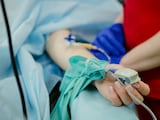India recorded 564 fresh Covid-19 cases in the last 24 hours. The total number of active Covid-19 cases stands at 4,866 as of Thursday morning, with Kerala remaining the most affected State, followed by Maharashtra, Gujarat, and Delhi, according to the Union Health Ministry data. At least 7 deaths were reported during the current resurgence of Covid-19 infection.
No need to panic, said experts
Doctors and health officials in India and across the world have said that the new Covid variants are not serious threats but are spreading faster. Director General of the Indian Council of Medical Research (ICMR) Dr Rajiv Behl also said that the severity of infections is currently generally mild and there is no cause for worry.
He also mentioned that Omicron Sub-variants LF.7, XFG, JN.1, and NB. 1.8.1 are currently circulating and are not severe.
Why should you do?
As cases are rising rapidly in India, it is important for all to follow safety precautions that can help you stay safe. Here are some government guidelines you should follow:
Do's
- Wash your hands frequently with soap and water or use alcohol-based hand rub with at least 60% alcohol.
- Wear a mask
- Cover your nose and mouth with a handkerchief/tissue while sneezing and coughing.
- Throw used tissues into closed bins immediately after use.
- Avoid mass gatherings and crowded places.
- Wash your hands before touching your eyes, nose and mouth.
- See a doctor if you feel unwell. Do not ignore symptoms like fever, difficulty breathing and cough. While visiting doctor wear a mask/cloth to cover your mouth and nose.
Don'ts
- Avoid touching surfaces that might be contaminated.
- Do not ignore symptoms and delay testing.
- Do not come in close contact with anyone who is sick.
- Avoid shaking hands
- Don't allow visitors at home or visit someone else's home.
As of May 2025, the World Health Organization (WHO) classifies LF.7 and NB.1.8 sub-variants as Variants Under Monitoring, not as Variants of Concern or Variants of Interest. But these are spreading rapidly and a rise in hospitalisation has been observed in China and other parts of Asia.
Disclaimer: This content including advice provides generic information only. It is in no way a substitute for a qualified medical opinion. Always consult a specialist or your own doctor for more information. NDTV does not claim responsibility for this information.















